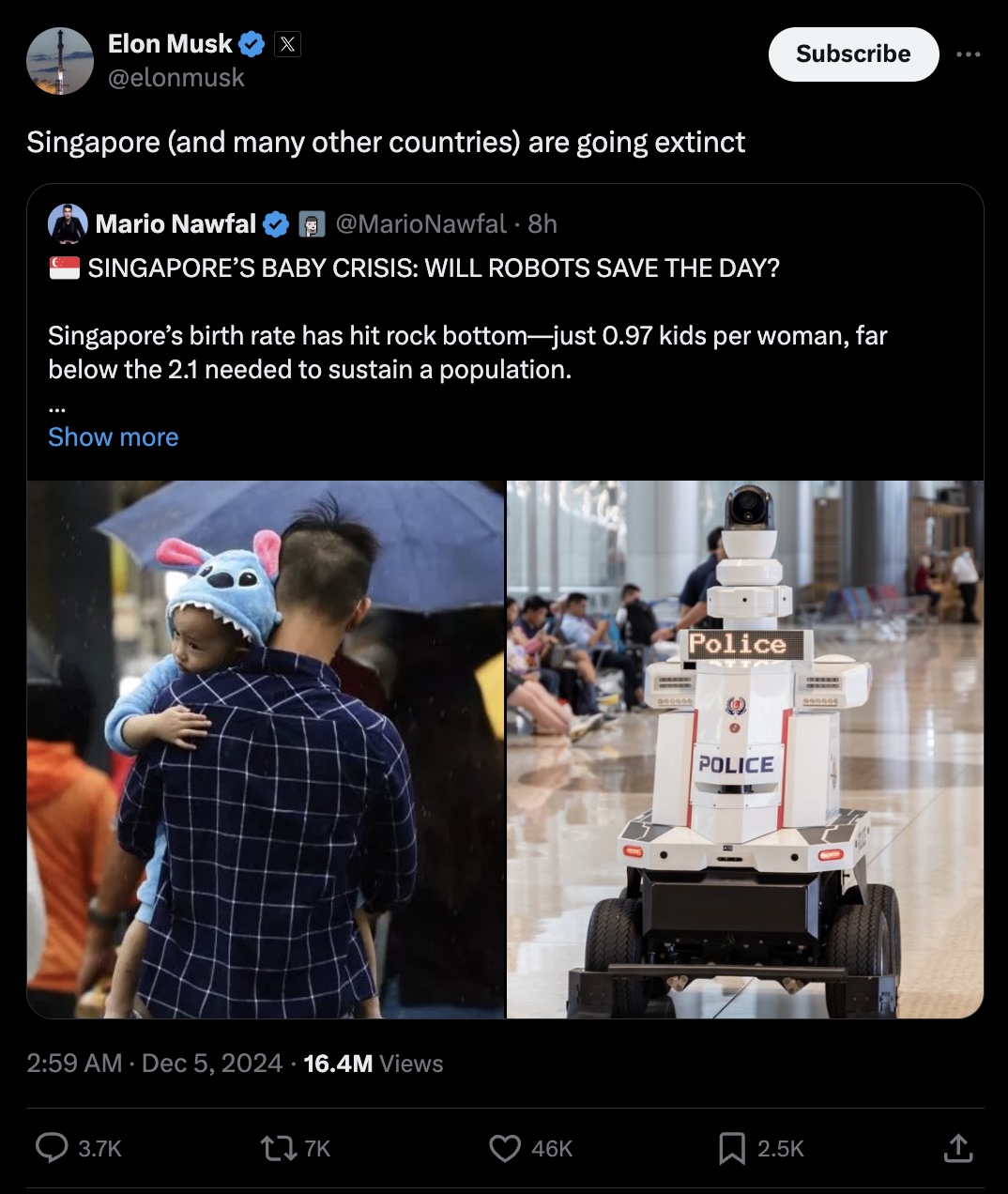SINGAPORE: Billionaire businessman Elon Musk tweeted about one of his favourite subjects yet again on Thursday (Dec 5)—the declining birth rate.
This time, however, he specifically mentioned Singapore, saying that the city-state, along with “many other countries” is “going extinct.”

The context of Mr Musk’s doomsday prediction for Singapore and other countries was a tweet from Mario Nawfal, who hosts a popular show on the platform.
In his tweet, which Mr Musk reposted, Mr Nawfal wrote about Singapore’s birth rate reaching a “rock bottom” 0.97 children for every woman, which is substantially less than the 2.1 required for sustainability.
This will result in a larger elderly population and a smaller number of working adults.
Based on a Dec 2 Newsweek piece, he added that the solution for a falling manpower rate in Singapore may come from turning towards robots and noted that the city-state “has the world’s second-highest robot density.”
Mr Musk’s tweet has since had 16.3 million views and has also been widely reshared.
Mr Musk, who bought Twitter in 2022 and subsequently renamed it “X,” has expressed concern over the threat of “population collapse.”
For example, he tweeted on Nov 27 that “2/3 of (South) Korea will disappear every generation.”
Demographers have refuted his claims, saying that the global population is, in actuality, on the increase.
However, in both Singapore and South Korea, as well as in other countries, birth rates have been plummeting.
South Korea is the more extreme example. The country recorded 0.72 births per woman in 2023, whereas in the 1960s, the country’s rate had been over five children per woman.
A number of factors are understood to be responsible for the plunge in South Korea’s birth rate, including poor wages, long working hours, and a decline in marriage rates.
As for Singapore, the total fertility rate has been on a downward trend, from 1.12 in 2021, to 1.04 in 2022, to 0.97 in 2023.
“There are various reasons for Singapore’s low fertility. Some are temporal, for instance, couples that had their marriage plans disrupted by COVID-19, which may have in turn delayed their parenthood plans,” Minister in the Prime Minister’s Office (PMO) Indranee Rajah said in Parliament in February.
More recently, she said, “Based on current trends, the number of citizen deaths could exceed the number of citizen births in the first half of the 2030s.”
Demographers, however, have said that the world is not in danger of a population collapse, although in large part, the current global population continues to grow not because of higher birth rates but because more people are living longer. /TISG
Read also: Young Singaporeans say SG’s high cost of living may be the top reason for Singapore’s low birth rate

